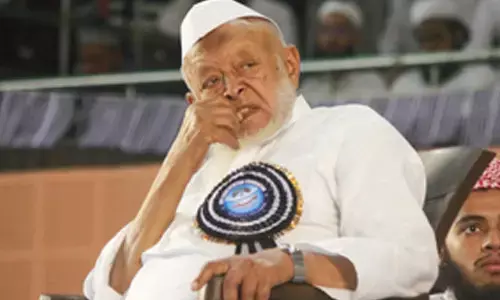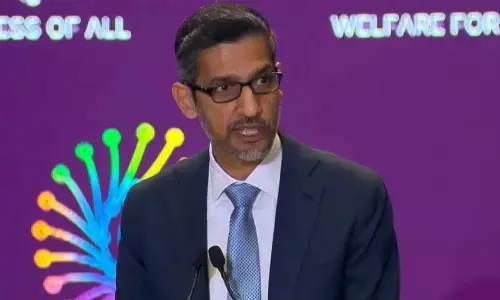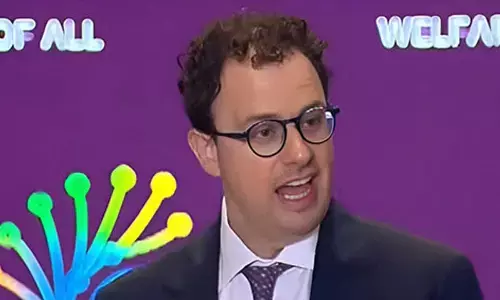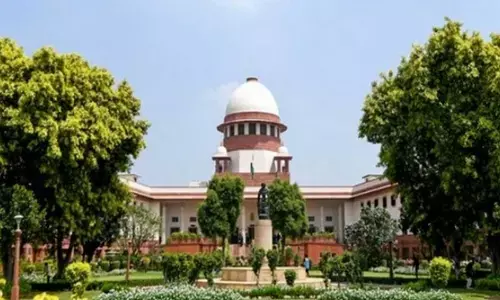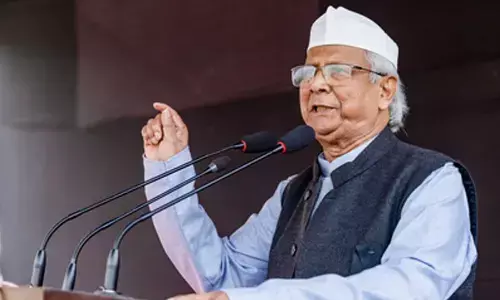SC, CIC, LCI strongly plead RTI for BCCI
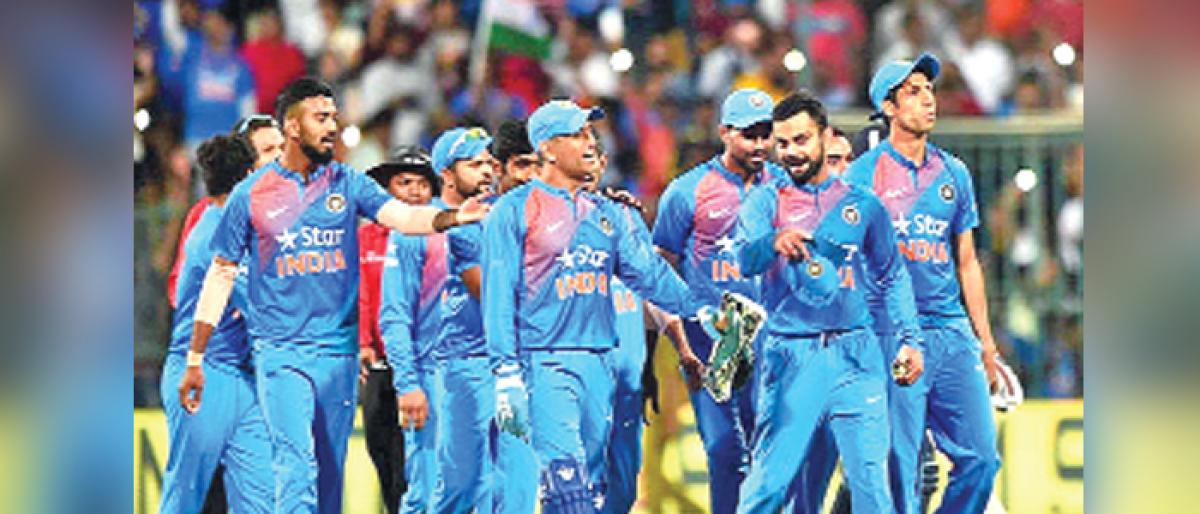
The Law Commission has come out with the 275th report that analysed the legal status of BCCI Explaining the status of the BCCI, the LCI stated that BCCIs actionsdecisions impact the fundamental rights of the players, umpires and the citizenry in general
The Law Commission has come out with the 275th report that analysed the legal status of BCCI. Explaining the status of the BCCI, the LCI stated that BCCI’s actions/decisions impact the fundamental rights of the players, umpires and the citizenry in general.
The Law Commission has found that the nature and character of the functions performed by the BCCI are public. With respect to regulation of cricket in India, no such legislation exists. The BCCI regulates the game and makes laws to that effect.
The Law Commission has found that the BCCI operates and functions as the National Sports Federation for cricket. The LCI notes that NSFs organise national/international tournaments in the country, select sportspersons/teams, send them for training and participation in international tournaments abroad, organise training/coaching under renowned Indian and foreign coaches and in relation to cricket, BCCI exclusively performs/undertakes these activities on behalf of India.
The BCCI’s Memorandum of Association also states that its objects and purposes are to control, improve quality and lay down policies pertaining to the game of cricket in India at international fora. The Law Commission thus concluded that the BCCI should also be treated as public authority in terms of the RTI Act.
The Central government and State governments do not extend any direct financial assistance to BCCI. However, the Law Commission found that they have been giving financial assistance in other forms and manner such as granting concessions in income tax, customs duty etc, providing land at excessively subsidised rates and allowing the use of their infrastructure among others.
If the government is foregoing a significant amount of money (in the form of tax or other levy) which otherwise would have been deposited in the national/state exchequer and would have been ‘public money’- it would qualify as indirect ‘substantial funding’ by the government.
Further allowing the BCCI to have monopoly in the game of cricket – authorising BCCI to raise funds/generate resources from numerous other sources, funds and resources, which otherwise could have been directed to the national/state exchequer also amounts to ‘substantial funding’ according to Law Commission.
To arrive at this conclusion the LCI relied upon various decisions of SC and HCs besides decisions of CIC in RK Jain v Indian Bank Association (Manjula Prasher & M Sridhar Acharyulu, ICs) CIC MP/C/2015/000044 and CIC/SH/C/2016/000123, A Darbari v PIO Willington Gymkhana Club CIC/SH/A/2014/000684 on 4.12.2017, CIC/AD/C/2010/001271, Subhash Chandra Agrawal case 2017 DDCA case: https://indiankanoon.org/doc/109889644/ 4th October 2017, CIC/LS/C/2012/000565 on 16.6.2017 by Commission.
In BCCI v Cricket Association of Bihar & Ors, Civil Appeals No 4235, 4236 of 2014, with Civil Appeal 1155 of 2015 Supreme Court ordered on 2nd January, 2017, directing the Committee of Administrators to ensure that the directions contained in the judgment of Supreme Court dated 18 July 2016 [(2015)3 SCC 251] which accepted the report of Lodha Committee with modifications, are fulfilled. The SC issued show cause notice to BCCI president for not implementing the reforms suggested.
The Law Commission of India recommended in the report that the RTI Act must apply to the BCCI and also all State cricket associations. In summary, it concluded as follows:
The BCCI should be considered ‘State’, for the purpose of Articles 12 and 32 of the Indian Constitution, by virtue of being "an agency or instrumentality of the state"; (Paragraph 7.1)
If the above is not accepted, BCCI should still be treated as a "public authority" given "State control"; (Paragraph 7.2)
If recognised as a private body only, the BCCI should be treated as a "public authority" given its monopolistic character, its impact on human rights and, most specifically, the "substantial financing" it has received “directly or indirectly” from the Central and State governments through large tax exemptions, discounts on prime real estate for stadium construction, etc.; (Paragraph 7.3)
The BCCI's use of national names/insignia and the tacit recognition it receives from the state must be duly noted; (Paragraph 7.4)
The BCCI virtually acts as a National Sports Federation and has been recognised as such by multiple governments, even if this status has not been admitted by the BCCI itself; (Paragraph 7.5 (3))
The BCCI would be further required to:
maintain all its records catalogued and indexed in a manner and the form which facilitates the public’s right to information; (Section 4)
publish, inter alia, the particulars of its organisation, functions and duties; the powers and duties of its officers and employees, a directory of such officers and employees and a statement of their remuneration and compensation; the procedure followed in the decision making process, including channels of supervision and accountability; the rules, regulations, instructions, manuals and records, held by it or under its control or used by its employees for discharging its functions; a statement of the boards, councils, committees and other bodies, and as to whether meetings of those boards, councils, committees and other bodies are open to the public, or the minutes of such meetings are accessible for public; its budget, indicating the particulars of all plans, proposed expenditures and reports on disbursements made; particulars of recipients of concessions, permits or authorisations granted by it; (Section 4)
publish all relevant facts while formulating important policies or announcing the decisions which affect the public; (Section 4)
provide reasons for its administrative or quasi-judicial decisions to affected persons; (Section 4) designate a Public Information Officer to provide information to persons requesting for the information under this Act. (Section 5)
The Law Commission of India not only affirmatively recognised the economic (‘monopoly’) nature of the BCCI acting as a sports federation for cricket but also went further to outline the power and ability of such a body to impact the human rights of athletes and potential athletes.
Previously, most similar attempts at legal analysis have primarily relied on whether or not the body is funded by the State and/or uses stage insignia and names. While State funding is indeed one of the elements in determining whether a non-government organisation is a “public authority” the economic and human rights impact of the body’s powers are dominant themes of the Report and its recommendations.
This represents a broader and more contemporary view of the jurisprudence backing the application of public laws to prima facie ‘private’ bodies in sport. Some other factors considered are:
Usage of national tricolours on the uniform of Indian cricket team (as selected by BCCI) and the Ashok Chakra on their helmets. BCCI, though nominates cricketers for the Arjuna Awards.
Though Parliament proposed a Bill, it did not go further to make a sports law on National Sports Federations NSF such as BCCI. Similarly, the State legislatures chose not to enact a legislation to govern the sport of cricket. This amounts to tacit recognition afforded to BCCI.



